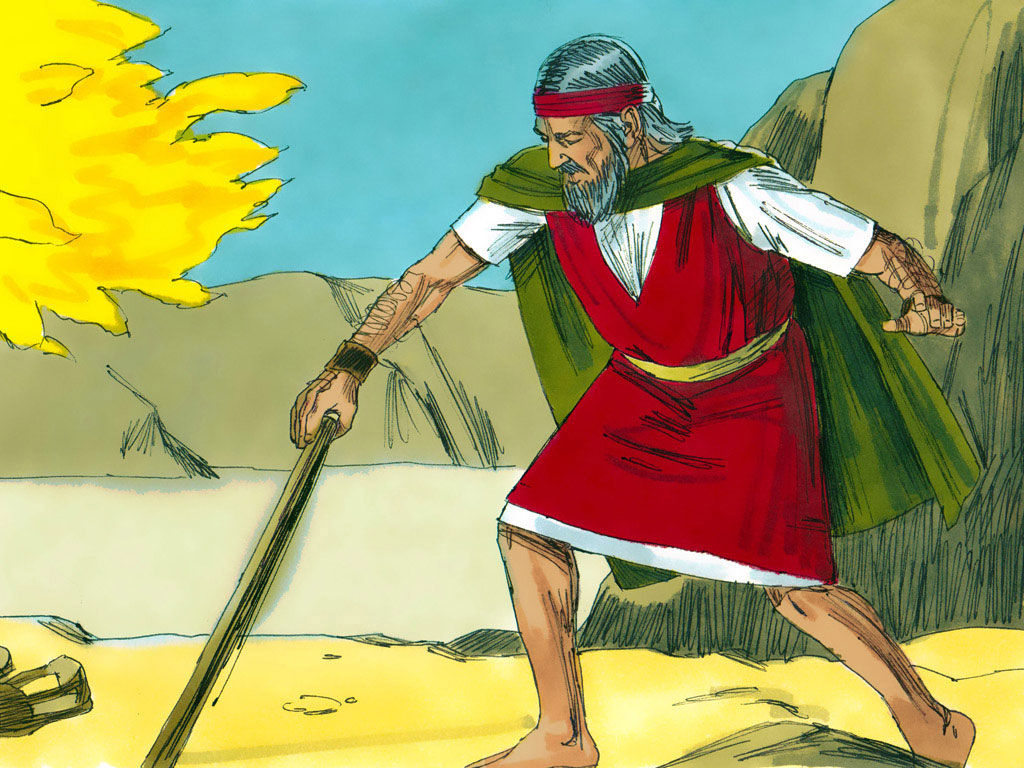Parshat Shmot
Parshat Shmot
By: Daniella Lakser | Sgan Mazkira, HA
This week’s parsha is Parshat Shemot! In a brief summary: the Jews are enslaved in Egypt. Eventually, Moshe is born to Yocheved, but grows up in Pharoah’s palace. Through his feeling of connection to his Jewish brothers, he saves one Jew from an Egyptian by killing the Egyptian. Later, he sees two Jews fighting and tries to break up the fight, yet is surprised when the Jews responded to him ״הלהרגני אתה אומר כאשר הרגת את המצרי״ “Do you mean to kill me as you killed the Egyptian?” Moshe was surprised that people know about what he did to the Egyptian, so he ran away to Midian to hide from Pharaoh. While he was herding sheep in Midian, he came across a burning bush. Hashem began to speak to Moshe from within the bush marking Moshe’s first official encounter with Hashem and Moshe being officially appointed to be the leader of the Jewish People to redeem them from slavery in Egypt.
Ultimately, Hashem’s master plan is to take the Jews out of Egypt and form them into His nation in order to bring them to the land of Israel. While Hashem’s ultimate master plan will without a doubt come true, at the same time He knows how to relate to the different people involved in the plan in a way that will make most sense to them. In this case, the three people involved in this plan are Moshe, Pharoah, and the Jewish People.
Throughout the start of Moshe’s story, we have seen that his motives for doing righteous actions are because his actions are the moral and practical thing to do in the given situations. For example, when he killed the Egyptian and saved the Jew, he did it because he knew it was the moral thing for him to do being that the Egyptian was mistreating the Jew. According to Rav Yoni Grossman, when Hashem tells Moshe His reasoning for redeeming the people, He says it is because ״ראיתי את הלחץ אשר מצרים לוחצים אותם״ “I have seen how the Egyptians oppress them.” This is how Hashem relates to Moshe. He knows that Moshe is accustomed to understanding life and decisions based on morality, so His reasoning given to Moshe for redeeming the people is focused on the fact that redeeming them is the moral thing to do because they are being oppressed.
Rabbi Menachem Leibtag discusses that Hashem didn’t tell Moshe to command Pharaoh to “let the people go,” but in reality He told Moshe to tell Pharaoh to “let the people go to the desert for three days to serve their God there.” Aside from Hashem knowing that Pharaoh would never just let the people go free, Hashem also knew that this request to Pharaoh would relate to him. The Egyptian culture was very focused on worshipping their gods, so it would make sense to Pharaoh that the Jewish People would have to go into the desert to serve their own God. Rabbi Leibtag also mentions that the reason why Hashem had to continuously harden Pharaoh’s heart was because even after Pharaoh allowed for the all of the people to be set free (but to leave behind all of their possessions), Moshe needed to convince Pharaoh that they needed to be set free with all of their possessions because they weren’t sure what their God would ask from them in the desert. All of the tactics used to convince Pharaoh to set the people free were with ideas (like worshipping gods) that related to Pharaoh’s mindset.
Rabbi Leibtag also teaches that in that time period, the desert was seen as a dangerous place without security, protection or resources. Even if the Jews were set free, it would be unlikely that they would all want to leave together in a short period of time. The only way for them to all leave with all of their possessions would be for them to get kicked out of Egypt overnight with everything they owned. Hashem related to the people by ensuring that Pharaoh would be so ready to have them leave that he would not just let them go but he would actively kick them out.
All three of these ways that Hashem related to Moshe, Pharaoh, and the Jews contribute to the characteristics that Hashem wanted to instill in the new nation He is building. He adopts the characteristic of morality from Moshe to teach the nation to have good morals. By convincing Pharaoh to let the people go serve their God, Hashem is showing the people the importance of involving Hashem in their lives and realizing that He is in control (this also may be the beginning of preparing the people to eventually accept Hashem’s rule over them and to receive His mitzvot.) Lastly, when Hashem has the people kicked out of Egypt, He does this in order to unify them as the nation and the people that they will become.
Individually, we can take these lessons of morality and spirituality and apply them to our own personal lives, yet it is important to understand that we also cherish the value of unity. We need to recognize that we should not just be moral and spiritual people on our own, but we need to be moral and spiritual as an entire nation as well.


 Read More
Read More

